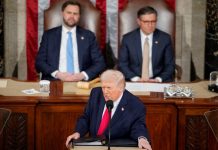Airtel Nigeria has proposed a tariff adjustment following a 300 per cent surge in operational costs over the past 18 to 24 months, a move the telecom giant says is critical for the long-term sustainability of the sector.
The company’s Chief Executive Officer, Dinesh Balsingh, made this known in a note shared on Monday, highlighting the economic pressures confronting the telecom industry. He revealed that while operating expenses have soared dramatically, telecom tariffs in Nigeria have remained static for over a decade, necessitating a reevaluation of pricing structures.
Balsingh explained that Nigerian telecom operators have formally submitted a proposal for a 100 per cent tariff increase to the Nigerian Communications Commission (NCC), the industry regulator, as part of efforts to align pricing with current economic realities.
“For over a decade, tariffs have remained unchanged despite the dramatic rise in operational expenses, which have surged by more than 300 per cent in the last 18 to 24 months alone,” he stated.
Sustaining Quality and Expanding Connectivity
Balsingh emphasised that the proposed tariff adjustments are vital to maintaining high-quality services, meeting the rising demand for digital connectivity, and ensuring the sustainability of the telecom sector. He pointed out that the increasing demand for digital services in critical sectors like education, banking, and healthcare requires substantial investments in network upgrades.
“These investments come at a cost, one that must be shared proportionally to guarantee long-term viability. By enabling us to expand coverage, strengthen network security, and introduce cutting-edge technologies, these adjustments will directly enhance the quality of connectivity for Nigerians,” he noted.
Commitment to Affordability and Digital Inclusion
Despite the proposed hike, Airtel has assured Nigerians that affordability remains a priority. The adjustments will be implemented gradually to minimise the financial impact on consumers while ensuring that everyone benefits from improved service delivery.
“Our commitment to quality service remains unwavering,” Balsingh said. “This step will enable us to invest in capacity, expand coverage, and enhance service delivery, ensuring Nigeria remains competitive in the global digital landscape.”
He reaffirmed Airtel’s dedication to supporting Nigeria’s vision of becoming a digital economy leader in Africa by driving innovation and fostering inclusive growth.
As the telecom sector navigates these economic challenges, the proposed tariff changes are expected to facilitate investments in infrastructure and technology, positioning Nigeria for sustained digital transformation and global competitiveness.











